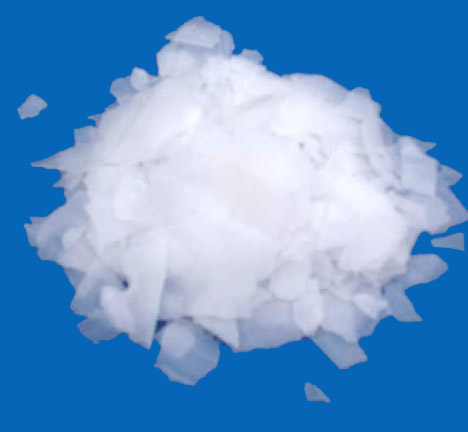Magnesium: what you don’t know could cost you

You’re a healthy person; you take your supplements. With all the medical benefits proven, it makes sense. However, you won’t want to just trust the label or you may be swallowing a tough pill. Magnesium is a complex mineral, and what you don’t know could cost you.
Every day we are bombarded with pharmaceutical commercials offering a pill for everything from teeth whitening to tingly toes. However, new scientific advancements recommend that people take more vitamins. Vitamins and minerals have improved health for more than a millennia. It is still important to consult a physician to make sure that each vitamin is right for you. Once you do that, you should know what you are planning to put in your body.

Magnesium is an amazing mineral that is extremely vital to the body. It is utilized by every organ, every single day. A deficiency can cause anxiety, agitation, restless leg syndrome, sleep disorders, nausea, abnormal heart rhythms, low blood pressure, muscle spasms, insomnia, and even seizures. On the positive side, there is a wealth of things it can improve. It is a little known fact that that eye twitch people get occasionally can be tamed by regular, healthy intake of magnesium. Also, according to chiropractic studies magnesium can help relieve back pain near the spine. According to medical experts, it is also known to help transmit nerve impulses better, help regulate body temperature, detoxify us, create energy for the body. It also helps form healthy bones and teeth. A recent study reported by Newsmax Inc. says that Magnesium may have the ability to benefit people with severe illnesses. Studies show that Magnesium may reverse osteoporosis. It helps prevent cardiovascular disease. It regulates high blood pressure (hypertension). It has also been noted to treat diabetes, migraines, insomnia, IBS and finally even depression is on the long list of benefits.
So, jumping to the point where you realize that you need to take magnesium. Now, you are looking for the perfect supplement. It is time to understand the different varieties of magnesium and what it means for your health. Minerals are not as easily absorbed into the body so there are different types with different levels of bio-availability (or absorption).

Magnesium Amino Acid Chelate This form of magnesium is made through a process called chelation where the mineral molecules are bonded to an amino acid. The magnesium ion could be attached to a lactate, a glycine, aspartate or arginate. It is preferable to have it attached to an aspartate or arginate for easier body absorption. This process is more natural for the body’s digestion system. This tricks the body into thinking it is simply an amino acid and the body absorbs it better this way. It also has less negative side effects. According to the research available, this may be the second best supplement available on the market today.
Magnesium Oxide This form of magnesium is most common in supplements, but it is very important to watch out for because it is the least productive of all magnesium forms. With an average of about 4% of the magnesium available to be absorbed into the body it is pretty impractical. It is cheaper so it is more available and can easily fool an uninformed person. Also, the side effects are worse since the body wants to get rid of the remaining 96% it can cause diarrhea and gastronomical distress. If you see this on the label, it is best to avoid it, or if you already have it at home, you may want to just throw that away; unless prescribed by a medical professional for other reasons.
Magnesium Citrate This form of magnesium is derived from the magnesium salt of citric acid. It is a lower concentration of magnesium for the body and this makes it easier to absorb for the body. This form is recommended for constipation and kidney stones. It is generally not a bad form of magnesium, but depending on the symptoms it may be recommended to try a higher concentration such as chelated, or others that will be mentioned later.
Magnesium Chloride This form is useful for many things that are not for human consumption. It is still better for the body than magnesium oxide, and it is easier to digest, but studies seem to indicate that the chloride form of supplement tends to stay in the stomach and preforms various things within the gastrointestinal tract. This information is good for people who feel that have issues within their gastrointestinal tract, but not so good for people who are looking for an all-preforming type of magnesium supplement.
Magnesium Orotate Recent studies are showing that this form may be the most productive for all parts of the body. It is created through mineral salts of orotic acid, which is the basic stuff that DNA and RNA are made of. It appears that orotates can penetrate the cell membranes allowing the magnesium ion to reach the inner most layers of each cell. According to several studies this form may be the most readily absorbable and easily useable form of magnesium on the market today.
Magnesium Lactate This form will have a higher concentration than citrate, but it is still just a moderate concentration. It is also higher absorption rate that magnesium oxide, but it is not recommended for people who have kidney issues. This form of magnesium is middle of the road for supplements, it isn’t the best, but it isn’t bad. It is mostly used for digestive issues.
Magnesium Sulfate This form is most commonly found in multi-vitamins. It has a very low concentration of magnesium, usually about 10% and has an absorption rate that is equal or slightly better than magnesium oxide. It is an inorganic form that contains sulfur and oxygen. It is most commonly referred to as Epsom salt and is used topically in a bath or for other skin treatments as well.
Magnesium Carbonate This form has moderate levels of magnesium concentration. It is better than some in this list, but still not the most recommended form. It is found more readily so it is commonly put into supplements as a cheaper alternative. It has about a 30% absorption rate. It is known to have a strong laxative effect when taken in bigger doses. It is also commonly used to make chalk and used as a drying agent by pitchers, gymnasts and rock climbers.

Finally, there are four other versions of magnesium that need to be talked about: Magnesium glycinate, malate, Taurates, and hydroxide. These forms should be avoided. If you seem them in your suppliment you will not become ill unless you take bigger doses. On the other hand, if you take small doses you are likely to not absorb any of it. It is mostly a waste of your money.
The supplement industry is a good industry, but it does not mean that all supplements are good. It is not in the best interest for the supplement producers to admit they are providing a product that is useless to the body. This is why it is very important for the consumer to be aware of what they are putting in their body. There are a lot of different options available and depending on your needs you may choose a stand-alone supplement or a multi-vitamin. Either way, the responsibility falls on you to decide and know what you need. Magnesium is a complex mineral, and what you don’t know could cost you.
References
Office of dietary supplements Editors, official website of the USA government dealing with magnesium, Retrieved from: http://ods.od.nih.gov/factsheets/Magnesium-HealthProfessional/
University of Maryland medical center official report on magnesium: retrieved from: http://www.umm.edu/altmed/articles/magnesium-000313.htm
(Jan 20th, 2011) Top 5 health Benefits of Magnesium. Found on the Newsmax news website from: http://www.newsmax.com/FastFeatures/Magnesium-health-benefits-supplements/2011/01/20/id/369647
Dr. Edward Group ( October 1st, 2010) 11 common types of magnesium explained. From the global healing center website. Retrieved from: http://www.globalhealingcenter.com/natural-health/types-of-magnesium/








